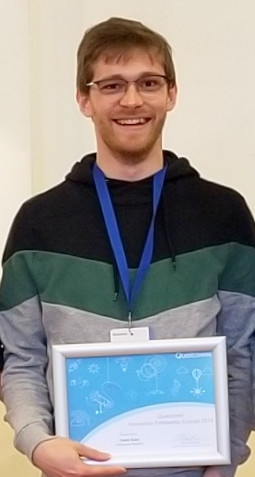In 2012, Qualcomm established the Qualcomm Innovation Fellowship for PhD students from selected universities and research institutions. In 2018, the Max Planck Institute for Informatics became part of the program — alongside only seven other institutions, including Oxbridge, EPF Lausanne and ETH Zürich. The Max Planck Institute for Informatics is the only German institution selected to be part of the program; and in 2018, my colleague Rakshith Shetty won the fellowship.
Thus, I am honored to have received the fellowship for the 2019/20 academic year for my ongoing research on adversarial robustness of deep neural networks. Alongside me, three more winners from EPF Lausanne and Imperial College London were selected: QIF Europe 2019 Winners.
The fellowship required to submit a three-page research proposal matching Qualcomm's areas of interest, covering a wide range of problems in machine learning and computer vision. During the finalist round, the proposal had to be presented in a 15-minute research talk. Besides researchers from Qualcomm's Amsterdam office, Rajesh Pankaj (senior vice president of engineering) and Peter Rauber (senior director of engineering and head of Qualcomm's European research offices) challenged the research proposals. The winners were announced shortly after the research talks.

